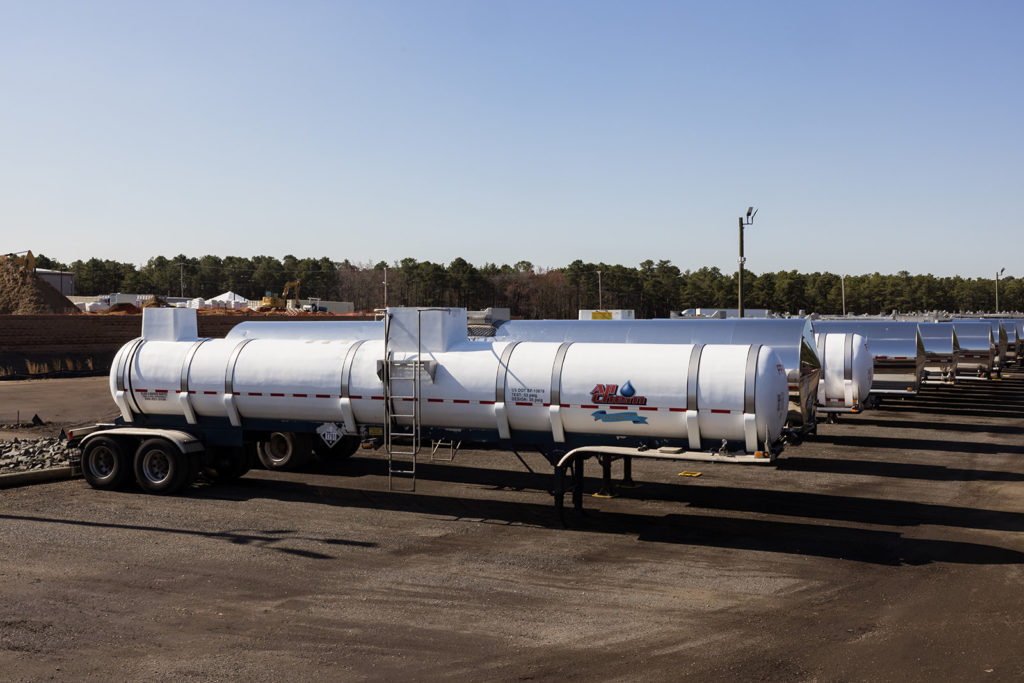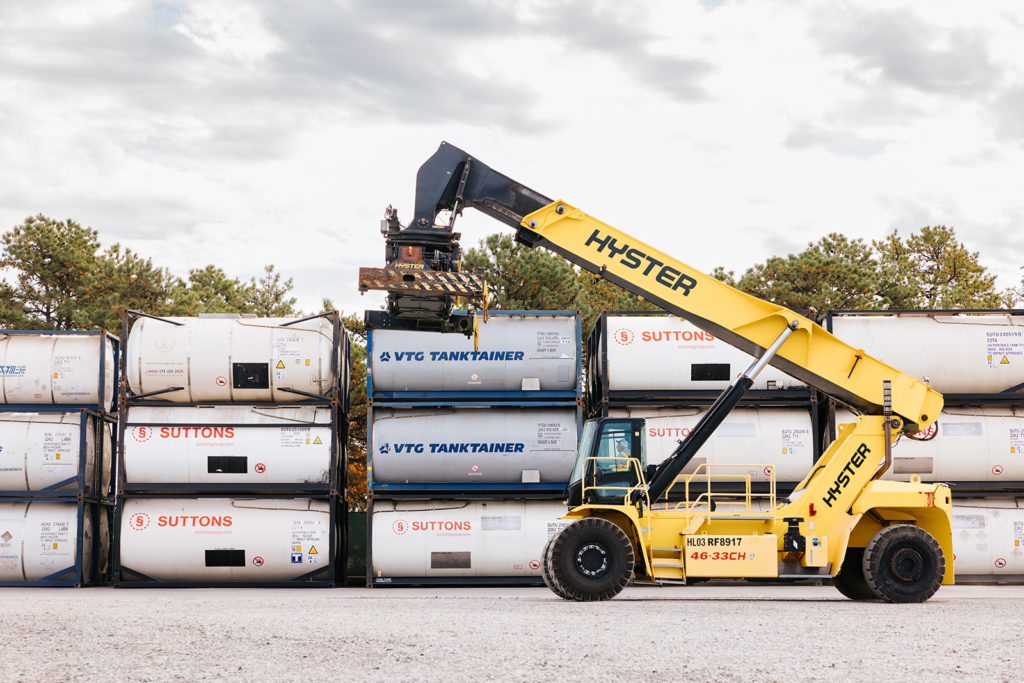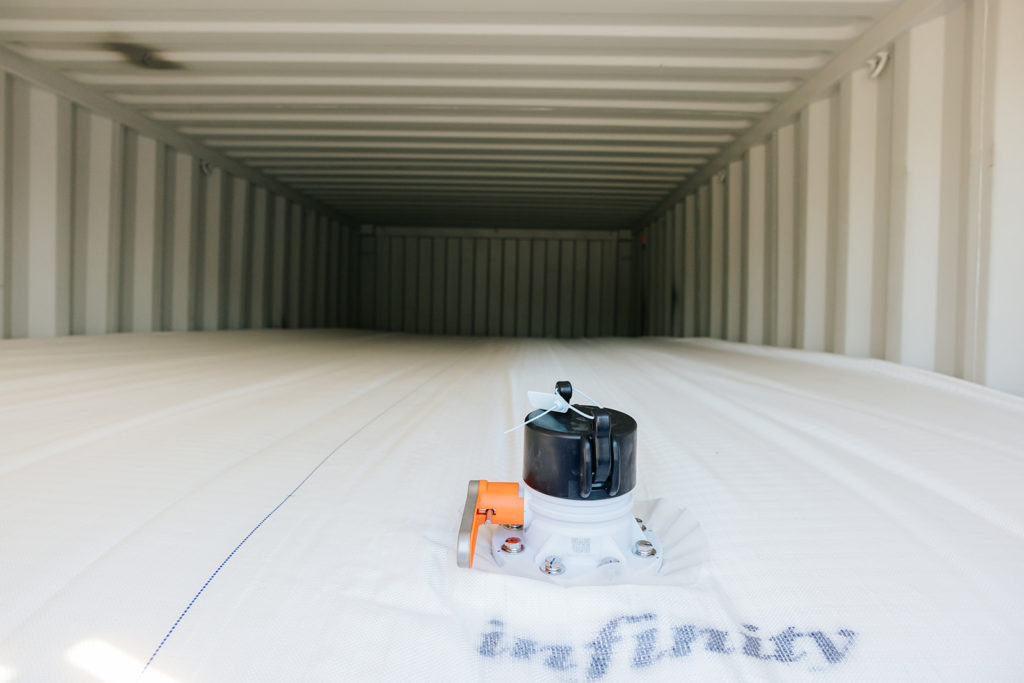All Chemical Articles:
How All Chemical Ensures Product Safety During Liquid Transport
April 10, 2025
How All Chemical Ensures Product Safety During Liquid Transport
For liquid transport trucking companies, safety is at the top of the importance list. That’s why we at All Chemical are always planning, training, and crafting protocols for maximum safety of the many products we transport. Safety is at the forefront of our minds at each stage of a haul: from the moment we receive an order, assign the truck driver, plan the route, and start loading, all the way to the delivery of the product.
As you might imagine, there are countless factors you need to consider when ensuring safety during liquid transport. In the end, they come down to three things:
- Your tank
- Your seals
- Temperature control
Choosing the Right Tank for Liquid Transport
Your first step when ensuring safety is the vessel you’re using to transport the liquid product. Different products require different containment protocols, and it’s of crucial importance to know the chemical properties of each product. What type of product is it?
- HAZMAT products
- Non-hazardous materials
- Kosher materials
Whatever your load, you’ll need complete familiarity with the product’s requirements in order to ship it in a tanker whose specifications will get the job done.
Liquid chemicals are often transported in tankers. Tankers are designed to handle the unique challenges associated with transporting liquids, including the need for secure containment and stability during transit. A tanker is used to transport varying types of liquid products.
In addition, All Chemical also has a small fleet of fiberglass reinforced plastic (FRP) trailers. These trailers are constructed using fiberglass, and are known for its strength, durability, and lightweight properties.
Our dispatchers choose the best piece of equipment for the job based on specific demands of the job, the nature of the cargo (including weight and corrosion), and any regulatory consideration or specialized applications.

The most common container is the ISO container (or intermodal container), which comes in a variety of sizes, though 20-foot or 40-foot lengths are the ones most shippers tend to use. These containers are standardized for convenience, safety, and cost-effectiveness, and they require proper handling and storage. They’re mandatory when shipping HAZMAT materials, due to their capacity for safety and secondary containment.

Other options exist, though, and sometimes a product requires a different type of tank. For example, the Flexibag container available to shippers can be the best choice for certain hauls. Thanks to their versatile technology and straightforward construction, these tankers can offer cost savings and greater availability than ISO containers in some circumstances.

Seals and Closure Systems
Next on the safety checklist: the seals and closure systems. These matter not just at the start of a haul, but at every stage, from transloading to transport to offloading. Product viscosity or problems with tank hoses and seals can lead to leakage and breaches of secondary containment—a liquid transporter’s nightmare!
- Inspections and compliance scores tell the story of a company’s professionalism and commitment to safety, and we work to ensure that our tankers, facilities, trucks and truck drivers all adhere to our high safety standards.
- Transloading puts a company’s safety standards to the test, as products must be transferred from one container to another without jeopardizing the product, the team managing the haul, or the surrounding community and environment. That’s why few companies offer transloading services, but our Lakewood facility does (with our fully contained, in-house transload stations).
- Proper kosher seals for trailers are required to transport liquid, food-grade, and other types of kosher products. We also ensure all hoses, valves and recovery lines are bagged for additional security. Knowing the significance of regulations for Kosher-certified transportation, we made sure our kosher fleet and service offerings fully met and exceeded all requirements set out by trusted rabbinic agencies.
Staying on Top of Temperature Control
As if all of that weren’t enough, you also need to manage the temperature control requirements for each product you’re hauling. Getting these protocols wrong can spell disaster:
- Secondary containment issues
- Loss or spoiling of product
- Lengthy shipping delays
- Equipment malfunction or damage
- Transloading gone awry
There’s a reason we at All Chemical are trusted by power, water, pharmaceutical, and Fortune 500 companies—as well as governmental agencies and even nuclear power plants—to safely handle liquid transportation all over the United States and Canada.
When the time comes that you need a product transported, give us a call. We’ve got the knowledge and expertise that will help you breathe easy, knowing your haul is in good hands.